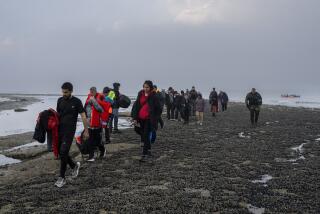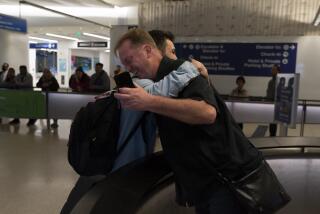Photo Essay : Kurds Find Hardship in Haven
The fighting in eastern Iraq would start without warning, often in the middle of the night. So the Kurds packed whatever they could, drove until they ran out of gas, then headed out on foot across a treacherous mountain path through what was once a restricted military zone, onward to Iran and safety.
While life for these Kurds in Iran may be safe, it has been anything but easy. In the wake of the Gulf War, tens of thousands of them still live in refugee camps like the ones called Zewa and Piran-shahr, where the accompanying photographs were taken. There they have food--some rice, bread and a few vegetables--and shelter, mostly canvas tents against the harsh weather. Kurdish doctors working in dispensaries never lack patients--many of them children who lost limbs encountering land mines on the road to Iran. But medicine is in short supply so the doctors often have to use ampicillin, a low-grade penicillin, to try to treat the typhoid and cholera that accompany the refugees from Iraq. It often doesn’t work.
Camp life is less than stimulating. Principal activities involve searching for the ever-diminishing supply of firewood for cooking. There’s not enough safe drinking water.
Iranian officials say the government has spent more than $500 million to help the Kurds and other refugees from Iraq. They say that bill grows by about $10 million a day.
“About 90% of the supplies delivered for the refugees has been provided by Iran, and the Iranians are very proud of what they are doing,” said Marcel Vergeer, spokesman for the League of Red Cross and Red Crescent societies in Iran.
Most of the outside aid for these refugees has come from Britain, France and the Netherlands. The United States, which has no diplomatic relations with Iran, sent two military transport planes with supplies. Private U.S. relief agencies, like the Santa Barbara-based Direct Relief International, have also sent medical supplies to the region. But Iran’s partial isolation from the West has denied it much of the international aid it needs to adequately care for the Kurds.
“Iraqi refugees in Iran should not be punished because they have fled to a nation isolated from the Western world,” said a report prepared by the U.S. Committee for Refugees, a private group based in Washington.
More to Read
Sign up for Essential California
The most important California stories and recommendations in your inbox every morning.
You may occasionally receive promotional content from the Los Angeles Times.










